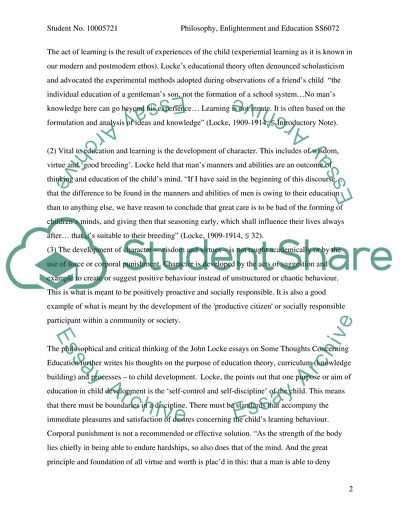Cite this document
(“John Locke's beliefs on the edcation of the child Essay”, n.d.)
Retrieved from https://studentshare.org/education/1475353-john-locke-s-beliefs-on-the-edcation-of-the-child
Retrieved from https://studentshare.org/education/1475353-john-locke-s-beliefs-on-the-edcation-of-the-child
(John Locke'S Beliefs on the Edcation of the Child Essay)
https://studentshare.org/education/1475353-john-locke-s-beliefs-on-the-edcation-of-the-child.
https://studentshare.org/education/1475353-john-locke-s-beliefs-on-the-edcation-of-the-child.
“John Locke'S Beliefs on the Edcation of the Child Essay”, n.d. https://studentshare.org/education/1475353-john-locke-s-beliefs-on-the-edcation-of-the-child.


